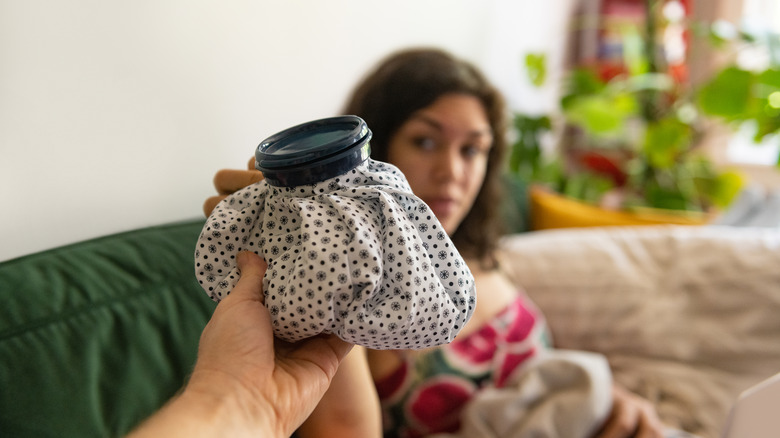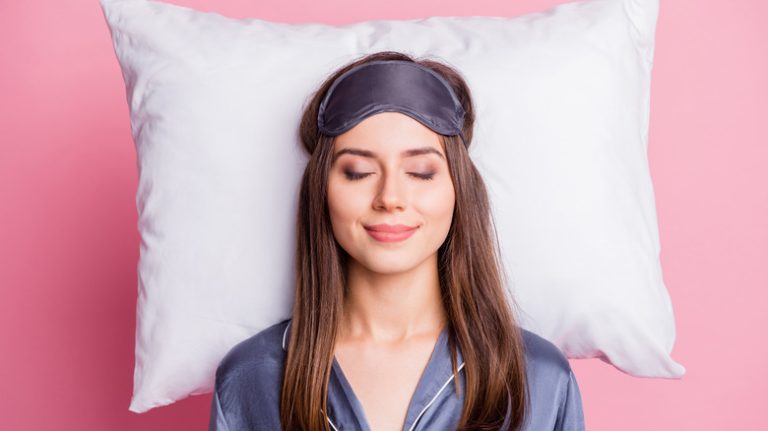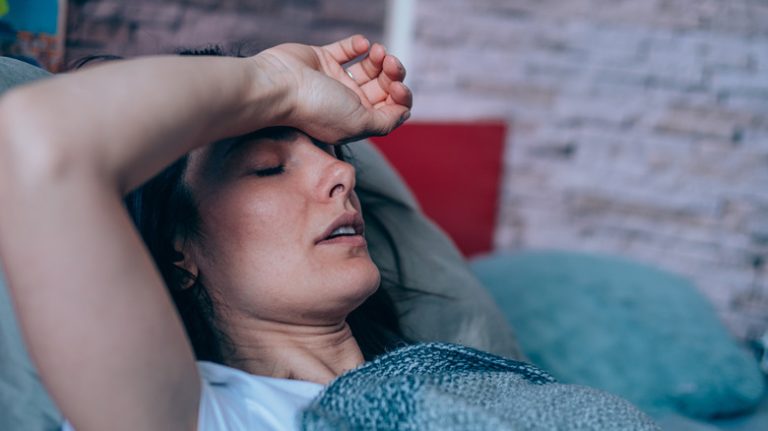The internet is full of ice tricks. There’s cold water therapy for the face and there are ice baths that apparently help with inflammation and boosting your mood.
Then there’s the mammalian dive reflex, which is said to aid with everything from hangovers to anxiety, per Everyday Health. You submerge your face in cold water for a few seconds and hold your breath, to apparently flick on an innate physiological reflex that causes your heart rate to slow down, per science. “When your heart rate is slower, blood is diverted from your limbs so your brain and organs get more blood flow,” shared clinical innovation associate at healthcare company Thriva, Noel Young (via Get the Gloss).
Turns out, it’s not only anxiety and hangovers that this trick helps. It could also help you fall asleep. And this has to do with the vagus nerve, which is the main nerve of your parasympathetic nervous system, the system concerned with relaxing your body, according to Cleveland Clinic. Submerging your face in cold water triggers your vagus nerve. “When the parasympathetic nervous system is activated, it regulates and slows down your heart rate and breathing and leads to an overall feeling of calm for many people,” offered board-certified clinical and forensic neuropsychologist, Dr. Judy Ho (via Well+Good). There are variations of this ice trick you can try too.
Placing an ice pack on your chest could also help you fall asleep faster

You may have heard that taking a plunge in cold water is linked with reduced stress and improved sleep (via Harper’s Bazaar), so it’s not entirely surprising that there are other ways to activate your parasympathetic nervous system. Placing an ice pack on your chest or neck might also do the trick, according to Sleep.com. This can be particularly beneficial on days when you don’t feel like plunging your entire face into cold water before bedtime. It can also be useful if you’re stressed before you head to bed. A California-based physical therapist told Everyday Health, “If your body is under a lot of stress — even if you don’t realize it — it causes your sympathetic system to be in overdrive.” The sympathetic system is what’s connected to your body’s “flight or fight” response.
Taking an ice water bath could also help, particularly if you’ve been out exercising and feel all hot and sweaty, shared sports medicine physician in the Department of Orthopedic Surgery at the Cleveland Clinic, Dr. Dominic King (via TODAY). “Some people note that it helps them actually sleep better, so after getting really hot, really sweaty, and doing (an ice bath) they just feel rested.”
A 2024 study also found a link between sleep quality in persons with insomnia and vagus nerve stimulation. The results indicate an increase in the production of melatonin, the hormone that regulates your circadian rhythms and sleep (via Psychology Today). Since the evidence seems promising, should you be turning to ice tricks when you can’t get to bed?
A few things to consider

Plunging your face into cold water might not be everyone’s cup of tea and it’s certainly not something you should be doing if you have a phobia for being underwater, holding your breath, or have any skin conditions that might get aggravated. Cosmetic dermatologist Michele Green told Insider, “You should avoid submerging your face for too long in the ice-cold water. If the water is too cold it can also cause skin irritation.”
Plus, those with existing heart conditions or breathing difficulties should speak with their healthcare provider before trying these tricks, explained Dr. Ho (via Well+Good). The idea is to expose your body to cold water, so you can try wetting a towel in ice water and wiping your face with it or even rubbing ice cubes on your wrists, according to the forensic neuropsychologist.
Also, there are other bedtime habits to help you fall asleep faster that also have to do with stimulating the vagus nerve. “You can do things like yoga and deep breathing exercises. Those indirectly stimulate the vagus nerve by stimulating other organs the vagus nerve innervates,” senior neurologist at the Centre for Neuro Skills, Dr. Stefanie N. Howell added.



